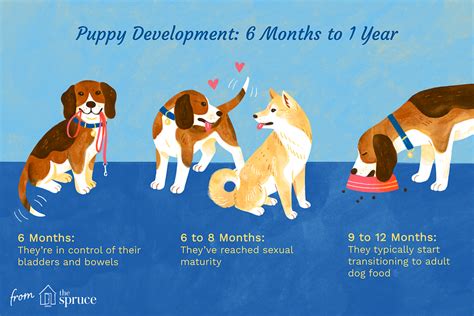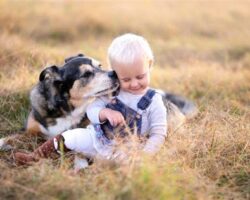Welcoming a new furry member into your family can be an exciting and rewarding experience, but it also comes with its fair share of challenges. From the initial stages of preparing for a new puppy to the later years of caring for a senior dog, each stage of canine ownership presents unique joys and obstacles. In this blog post, we will guide you through the various stages of dog ownership, offering insights and tips on how to navigate the journey from puppyhood to adulthood. We will cover everything from the chaos of puppyhood to the challenges of training and dealing with adolescent behavior, as well as the importance of maintaining your dog’s health and wellbeing throughout their life. Join us as we delve into the world of dog ownership and learn how to care for your furry companion at every stage of their life.
Preparing for your new furry addition
Bringing a new furry addition into your home is an exciting and joyful experience. Before you bring your new pet home, it’s important to make sure you are fully prepared to provide them with a safe and comfortable environment.
One of the first things to consider is pet-proofing your home. Just like with a new baby, it’s important to make sure your space is safe for your new pet. This may include removing any toxic plants, securing hazardous items, and creating a designated space for your pet to eat, sleep, and play.
Another important aspect of preparing for your new furry addition is purchasing the necessary supplies. This may include a collar and leash, food and water dishes, a comfortable bed, and toys for mental stimulation and play. You may also need to consider pet insurance, grooming supplies, and a crate for training and safety.
Lastly, it’s important to consider the emotional and mental preparation for bringing a new pet into your home. It’s essential to be patient and understanding as your new pet adjusts to their new surroundings. Spending quality time with your pet, providing them with love and attention, and creating a routine can help ease the transition for both you and your new furry addition.
The joy and chaos of puppyhood
The joy and chaos of puppyhood
Bringing a new puppy into your home can be both an exciting and chaotic experience. The joy of having a new furry addition to your family is unmatched, but the chaos of puppyhood can also be overwhelming at times.
From the moment you bring your new puppy home, you’ll be faced with the challenges of potty training, teething, and socializing your new pet. It’s important to remember that these are all normal behaviors for a young dog, and with patience and consistent training, you can help your puppy grow into a well-behaved adult.
One of the most rewarding aspects of puppyhood is watching your new pet learn and grow. Puppies are incredibly adaptable and eager to please, which makes training them a fun and fulfilling experience. Whether you’re teaching basic commands like sit and stay, or working on more advanced behaviors, like walking on a leash or interacting with other dogs, the bond you build with your puppy during these training sessions is priceless.
Despite the chaos that comes with raising a puppy, the joy of seeing them learn, grow, and become a beloved member of your family makes it all worth it. With the right guidance and training, your puppy can bring endless love and happiness into your life for years to come.
Training your dog: the key to a well-behaved pet
Training your dog is crucial for ensuring they are a well-behaved and obedient pet. Consistent training from a young age can help prevent behavioral issues and create a strong bond between you and your furry friend. It is important to establish yourself as the leader of the pack and set clear boundaries and expectations for your dog.
Using positive reinforcement techniques such as treats, praise, and toys can motivate your dog to learn and follow commands. Patience and persistence are key when it comes to training, as some dogs may take longer to grasp certain behaviors. It’s important to understand that every dog is different and may require a unique approach to training.
Consistency is vital when it comes to training your dog. Regular practice and reinforcement of commands will help them understand what is expected of them. It’s also important to keep training sessions short and enjoyable to prevent your dog from becoming disinterested or overwhelmed.
Remember that training is an ongoing process and doesn’t stop once your dog has mastered the basics. Continued training throughout their life will help maintain their good behavior and strengthen the bond between you and your pet. By investing the time and effort into training your dog, you can ensure they are a well-behaved and happy member of your family.
Dealing with adolescent behavior challenges
Dealing with adolescent behavior challenges can be a frustrating and exhausting experience for any dog owner. As puppies enter their adolescent phase, they often test boundaries, exhibit stubbornness, and engage in destructive behaviors. It’s important to remember that this is a normal part of their development, but it can still be incredibly challenging to manage.
One of the key strategies for dealing with adolescent behavior challenges is to provide consistent and positive reinforcement training. This means setting clear expectations for your dog’s behavior and using rewards to encourage good actions. Utilizing positive reinforcement techniques can help to build a strong bond between you and your dog and can ultimately lead to better behavior.
Another important aspect of dealing with adolescent behavior challenges is to provide your dog with plenty of mental and physical stimulation. Boredom and excess energy can often lead to destructive behaviors, so it’s essential to keep your dog engaged and active. This can include regular walks, interactive play sessions, and training exercises to keep their mind sharp.
Finally, patience and consistency are crucial when dealing with adolescent behavior challenges. It’s important to remain calm and collected when addressing undesirable behaviors and to avoid reacting with anger or frustration. Consistency in your training methods and expectations will help your dog understand what is and is not acceptable behavior.
Maintaining your dog’s health and wellbeing
As a pet owner, maintaining your dog’s health and wellbeing is crucial in ensuring a long and happy life for your furry friend. This involves regular visits to the veterinarian for check-ups and vaccinations, as well as providing a balanced diet and regular exercise.
Regular exercise is important in maintaining your dog’s overall health and wellbeing. Taking your dog for daily walks or engaging in active playtime helps to keep them physically fit and mentally stimulated. It also reduces the risk of obesity and related health issues.
In addition to physical health, it’s important to consider your dog’s mental wellbeing. Providing a safe and stimulating environment, as well as plenty of social interaction, can help prevent anxiety and behavioral issues.
Finally, it’s essential to keep an eye out for any changes in your dog’s behavior or physical condition, as these could be signs of underlying health issues. By staying proactive and attentive to your dog’s needs, you can ensure that they lead a happy and healthy life.
The importance of socialization for adult dogs
Socialization is a crucial aspect of a dog’s mental and emotional development. It involves exposing your adult dog to a variety of experiences, people, places, and other animals in order to ensure that they are well-adjusted and well-behaved in different situations. This process is important because it helps them to feel comfortable and confident in new environments, reducing the likelihood of fear or aggression.
Furthermore, socialization can prevent behavioral issues such as anxiety, fear, and reactivity towards other animals or humans. When adult dogs are properly socialized, they are less likely to exhibit aggressive or anxious behaviors in unfamiliar situations. This can lead to a more enjoyable and stress-free relationship between the dog and their owner.
It’s important to note that socialization should be a lifelong process for adult dogs. Even if your dog was well-socialized as a puppy, it’s crucial to continue exposing them to new stimuli and experiences throughout their life. This can include visits to new places, encounters with unfamiliar people and animals, and positive interactions with different environments.
In conclusion, the importance of socialization for adult dogs cannot be overstated. It is a key factor in ensuring that your dog is well-adjusted, well-behaved, and happy in various social settings. By making socialization an ongoing part of your dog’s routine, you can help them develop into a well-rounded and confident adult canine companion.
Addressing common behavior issues in adult dogs
As your dog grows older, you may start to notice some common behavior issues that are quite common in adult dogs. These issues can range from separation anxiety, aggression, destructive chewing, to excessive barking. It’s important to address these behavior problems in a timely manner to ensure the well-being of your furry friend and the harmony in your home.
One of the most common behavior issues in adult dogs is separation anxiety. This can manifest in excessive barking, destructive behavior, and even house soiling when the dog is left alone. It’s important to gradually acclimate your dog to being alone and provide them with comfort through toys, treats, and a safe space while you are away.
Another behavior issue that many dog owners face is aggression. This can be towards people, other animals, or even inanimate objects. It’s crucial to work with a professional trainer to address the root cause of the aggression and implement positive reinforcement techniques to modify the behavior. It’s also important to ensure that your dog is well-socialized and exposed to different stimuli from a young age to prevent aggression issues.
Finally, excessive barking and destructive chewing are common behavior issues that many dog owners face. These can often be a result of boredom, anxiety, or lack of exercise. Providing mental and physical stimulation through interactive toys, regular walks, and engaging training sessions can help curb these behaviors and ensure a well-balanced and happy adult dog.
Caring for senior dogs: special considerations
As our furry friends grow older, they require special care and attention to ensure they live out their golden years in comfort and happiness. Caring for senior dogs comes with a set of unique considerations that every pet owner should be aware of.
One major concern when it comes to senior dogs is their health and wellbeing. Regular visits to the veterinarian become even more important as age-related health issues may arise. It’s crucial to stay on top of their vaccinations, dental care, and any potential chronic conditions that may develop.
Another important aspect of caring for senior dogs is their diet. As their metabolism slows down and their activity levels decrease, it’s essential to provide them with a balanced and nutritionally appropriate diet. This can help prevent obesity and maintain their overall health.
Additionally, senior dogs may experience decreased mobility and joint pain, making it important to provide them with a comfortable and supportive living environment. This could include providing orthopedic bedding, non-slip flooring, and gentle exercise tailored to their abilities.





